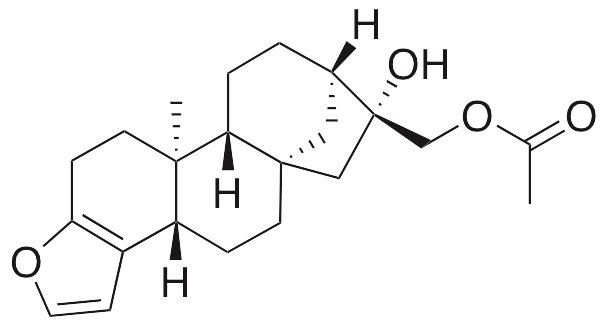Description
Cafestol is a diterpene initially found in brewed, unfiltered coffee that exhibits anti-angiogenic, anticancer, chemopreventive, neuromodulatory, anti-inflammatory, and hyperlipidemic activities. Cafestol inhibits proliferation, migration, and tube formation in vitro, potentially through decreasing phosphorylation of FAK and Akt. In renal carcinoma cells, cafestol induces G1 phase cell cycle arrest and apoptosis, decreases the mitochondrial membrane potential, increases activation of caspase 3, downregulates expression of Bcl-2, Bcl-cl, Mcl-1, and FLIP, suppresses Akt pathway signaling, and inhibits cellular proliferation. In other cellular models, cafestol decreases aflatoxin B1-induced DNA adduct formation and increases levels of glutathione-S-transferase. Additionally, cafestol activates Nrf2 and displays protective benefit in models of Parkinson’s disease. In LPS-stimulated macrophages, this compound inhibits ERK2 and MEK1 and decreases production of COX-2 and prostaglandin E2 (PGE2). In vivo, cafestol upregulates expression of genes involved in cholesterol homeostasis by acting as an agonist at the farnesoid X receptor (FXR) and pregnane X receptor (PXR).
